Death has been a never-ending theme in poetry. That’s why numerous best poems about death by famous poets were created with the most beautiful and emotional verses. Many well-known poets throughout history have been inspired to write about Death to deliver their views of mortality, creating timeless works that can continue to resonate with readers today.
One of the most recognized poets, especially when it comes to Death, is Emily Dickinson. Her famous death poems include some of the most intense and moving verses ever that just make you have to think and contemplate. Her hauntingly beautiful poems challenge the fear often associated with death and suggest we view it as a natural part of life. Another iconic poet, John Donne, also contributed to the genre. His works claim that death is not the ultimate end but merely a transition to eternal life. He had been mastery of metaphysical poetry shines in this profound exploration of mortality. We also have another renowned poet, Dylan Thomas who left an unforgettable mark with his famous death poems, urging everyone not to surrender to death but rather to rage against it. His works resonate as a powerful call to live a life filled with passion and purpose, encouraging his readers to embrace life’s vitality and make the most of their limited time whilst living.
Overall, we have collected some of the best poems about death by famous poets that capture the depth and complexity of human emotions in the shadow of death. Through their profound insights and heartfelt emotions, these poems offer comfort and understanding in the face of death’s uncertainty, making them timeless classics in the world of poetry.
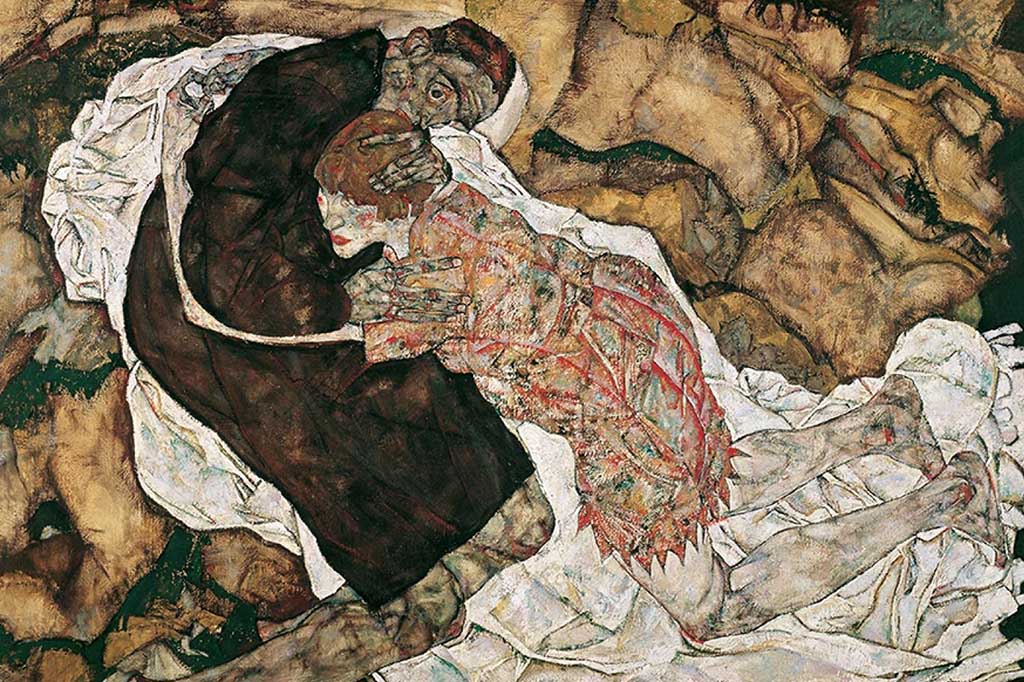
1, Do not go gentle into that good night © Dylan Thomas
Do not go gentle into that good night,
Old age should burn and rave at close of day;
Rage, rage against the dying of the light.
Though wise men at their end know dark is right,
Because their words had forked no lightning they
Do not go gentle into that good night.
Good men, the last wave by, crying how bright
Their frail deeds might have danced in a green bay,
Rage, rage against the dying of the light.
Wild men who caught and sang the sun in flight,
And learn, too late, they grieved it on its way,
Do not go gentle into that good night.
Grave men, near death, who see with blinding sight
Blind eyes could blaze like meteors and be gay,
Rage, rage against the dying of the light.
And you, my father, there on the sad height,
Curse, bless, me now with your fierce tears, I pray.
Do not go gentle into that good night.
Rage, rage against the dying of the light.
2, Because I could not stop for death © Emily Dickinson
Because I could not stop for Death –
He kindly stopped for me –
The Carriage held but just Ourselves –
And Immortality.
We slowly drove – He knew no haste
And I had put away
My labor and my leisure too,
For His Civility –
We passed the School, where Children strove
At Recess – in the Ring –
We passed the Fields of Gazing Grain –
We passed the Setting Sun –
Or rather – He passed Us –
The Dews drew quivering and Chill –
For only Gossamer, my Gown –
My Tippet – only Tulle –
We paused before a House that seemed
A Swelling of the Ground –
The Roof was scarcely visible –
The Cornice – in the Ground –
Since then – ’tis Centuries – and yet
Feels shorter than the Day
I first surmised the Horses’ Heads
Were toward Eternity –
3, Death Is Nothing At All © Henry Scott-Holland
Death is nothing at all.
It does not count.
I have only slipped away into the next room.
Nothing has happened.
Everything remains exactly as it was.
I am I, and you are you,
and the old life that we lived so fondly together is untouched, unchanged.
Whatever we were to each other, that we are still.
Call me by the old familiar name.
Speak of me in the easy way which you always used.
Put no difference into your tone.
Wear no forced air of solemnity or sorrow.
Laugh as we always laughed at the little jokes that we enjoyed together.
Play, smile, think of me, pray for me.
Let my name be ever the household word that it always was.
Let it be spoken without an effort, without the ghost of a shadow upon it.
Life means all that it ever meant.
It is the same as it ever was.
There is absolute and unbroken continuity.
What is this death but a negligible accident?
Why should I be out of mind because I am out of sight?
I am but waiting for you, for an interval,
somewhere very near,
just round the corner.
All is well.
Nothing is hurt; nothing is lost.
One brief moment and all will be as it was before.
How we shall laugh at the trouble of parting when we meet again!
4, Death, be not Proud (Holy Sonnet 10) © John Donne
Death, be not proud, though some have called thee
Mighty and dreadful, for thou are not so;
For those whom thou think’st thou dost overthrow
Die not, poor Death, nor yet canst thou kill me.
From rest and sleep, which but thy pictures be,
Much pleasure; then from thee much more must flow,
And soonest our best men with thee do go,
Rest of their bones, and soul’s delivery.
Thou’art slave to fate, chance, kings, and desperate men,
And dost with poison, war, and sickness dwell,
And poppy’or charms can make us sleep as well
And better than thy stroke; why swell’st thou then?
One short sleep past, we wake eternally,
And death shall be no more; Death, thou shalt die.
5, Do Not Stand At My Grave And Weep © Clare Harner
Do not stand
By my grave, and weep.
I am not there,
I do not sleep-
I am the thousand winds that blow
I am the diamond glints in snow
I am the sunlight on ripened grain,
I am the gentle, autumn rain.
As you awake with morning’s hush,
I am the swift up-flinging rush
Of quiet birds in circled flight,
I am the day transcending soft night.
Do not stand
By my grave, and cry-
I am not there.
I did not die.
6, A Child Of Mine © Edgar A. Guest
I will lend you, for a little time,
A child of mine, He said.
For you to love the while he lives,
And mourn for when he’s dead.
It may be six or seven years,
Or twenty-two or three.
But will you, till I call him back,
Take care of him for Me?
He’ll bring his charms to gladden you,
And should his stay be brief.
You’ll have his lovely memories,
As solace for your grief.
I cannot promise he will stay,
Since all from earth return.
But there are lessons taught down there,
I want this child to learn.
I’ve looked the wide world over,
In search for teachers true.
And from the throngs that crowd life’s lanes,
I have selected you.
Now will you give him all your love,
Nor think the labour vain.
Nor hate me when I come
To take him home again?
I fancied that I heard them say,
‘Dear Lord, Thy will be done!’
For all the joys Thy child shall bring,
The risk of grief we’ll run.
We’ll shelter him with tenderness,
We’ll love him while we may,
And for the happiness we’ve known,
Forever grateful stay.
But should the angels call for him,
Much sooner than we’ve planned.
We’ll brave the bitter grief that comes,
And try to understand.
7, The Raven © Edgar Allan Poe
Once upon a midnight dreary, while I pondered, weak and weary,
Over many a quaint and curious volume of forgotten lore—
While I nodded, nearly napping, suddenly there came a tapping,
As of some one gently rapping, rapping at my chamber door.
“’Tis some visitor,” I muttered, “tapping at my chamber door—
Only this and nothing more.”
Ah, distinctly I remember it was in the bleak December;
And each separate dying ember wrought its ghost upon the floor.
Eagerly I wished the morrow;—vainly I had sought to borrow
From my books surcease of sorrow—sorrow for the lost Lenore—
For the rare and radiant maiden whom the angels name Lenore—
Nameless here for evermore.
And the silken, sad, uncertain rustling of each purple curtain
Thrilled me—filled me with fantastic terrors never felt before;
So that now, to still the beating of my heart, I stood repeating
“’Tis some visitor entreating entrance at my chamber door—
Some late visitor entreating entrance at my chamber door;—
This it is and nothing more.”
Presently my soul grew stronger; hesitating then no longer,
“Sir,” said I, “or Madam, truly your forgiveness I implore;
But the fact is I was napping, and so gently you came rapping,
And so faintly you came tapping, tapping at my chamber door,
That I scarce was sure I heard you”—here I opened wide the door;—
Darkness there and nothing more.
Deep into that darkness peering, long I stood there wondering, fearing,
Doubting, dreaming dreams no mortal ever dared to dream before;
But the silence was unbroken, and the stillness gave no token,
And the only word there spoken was the whispered word, “Lenore?”
This I whispered, and an echo murmured back the word, “Lenore!”—
Merely this and nothing more.
Back into the chamber turning, all my soul within me burning,
Soon again I heard a tapping somewhat louder than before.
“Surely,” said I, “surely that is something at my window lattice;
Let me see, then, what thereat is, and this mystery explore—
Let my heart be still a moment and this mystery explore;—
’Tis the wind and nothing more!”
Open here I flung the shutter, when, with many a flirt and flutter,
In there stepped a stately Raven of the saintly days of yore;
Not the least obeisance made he; not a minute stopped or stayed he;
But, with mien of lord or lady, perched above my chamber door—
Perched upon a bust of Pallas just above my chamber door—
Perched, and sat, and nothing more.
Then this ebony bird beguiling my sad fancy into smiling,
By the grave and stern decorum of the countenance it wore,
“Though thy crest be shorn and shaven, thou,” I said, “art sure no craven,
Ghastly grim and ancient Raven wandering from the Nightly shore—
Tell me what thy lordly name is on the Night’s Plutonian shore!”
Quoth the Raven “Nevermore.”
Much I marvelled this ungainly fowl to hear discourse so plainly,
Though its answer little meaning—little relevancy bore;
For we cannot help agreeing that no living human being
Ever yet was blessed with seeing bird above his chamber door—
Bird or beast upon the sculptured bust above his chamber door,
With such name as “Nevermore.”
But the Raven, sitting lonely on the placid bust, spoke only
That one word, as if his soul in that one word he did outpour.
Nothing farther then he uttered—not a feather then he fluttered—
Till I scarcely more than muttered “Other friends have flown before—
On the morrow he will leave me, as my Hopes have flown before.”
Then the bird said “Nevermore.”
Startled at the stillness broken by reply so aptly spoken,
“Doubtless,” said I, “what it utters is its only stock and store
Caught from some unhappy master whom unmerciful Disaster
Followed fast and followed faster till his songs one burden bore—
Till the dirges of his Hope that melancholy burden bore
Of ‘Never—nevermore’.”
But the Raven still beguiling all my fancy into smiling,
Straight I wheeled a cushioned seat in front of bird, and bust and door;
Then, upon the velvet sinking, I betook myself to linking
Fancy unto fancy, thinking what this ominous bird of yore—
What this grim, ungainly, ghastly, gaunt, and ominous bird of yore
Meant in croaking “Nevermore.”
This I sat engaged in guessing, but no syllable expressing
To the fowl whose fiery eyes now burned into my bosom’s core;
This and more I sat divining, with my head at ease reclining
On the cushion’s velvet lining that the lamp-light gloated o’er,
But whose velvet-violet lining with the lamp-light gloating o’er,
She shall press, ah, nevermore!
Then, methought, the air grew denser, perfumed from an unseen censer
Swung by Seraphim whose foot-falls tinkled on the tufted floor.
“Wretch,” I cried, “thy God hath lent thee—by these angels he hath sent thee
Respite—respite and nepenthe from thy memories of Lenore;
Quaff, oh quaff this kind nepenthe and forget this lost Lenore!”
Quoth the Raven “Nevermore.”
“Prophet!” said I, “thing of evil!—prophet still, if bird or devil!—
Whether Tempter sent, or whether tempest tossed thee here ashore,
Desolate yet all undaunted, on this desert land enchanted—
On this home by Horror haunted—tell me truly, I implore—
Is there—is there balm in Gilead?—tell me—tell me, I implore!”
Quoth the Raven “Nevermore.”
“Prophet!” said I, “thing of evil!—prophet still, if bird or devil!
By that Heaven that bends above us—by that God we both adore—
Tell this soul with sorrow laden if, within the distant Aidenn,
It shall clasp a sainted maiden whom the angels name Lenore—
Clasp a rare and radiant maiden whom the angels name Lenore.”
Quoth the Raven “Nevermore.”
“Be that word our sign of parting, bird or fiend!” I shrieked, upstarting—
“Get thee back into the tempest and the Night’s Plutonian shore!
Leave no black plume as a token of that lie thy soul hath spoken!
Leave my loneliness unbroken!—quit the bust above my door!
Take thy beak from out my heart, and take thy form from off my door!”
Quoth the Raven “Nevermore.”
And the Raven, never flitting, still is sitting, still is sitting
On the pallid bust of Pallas just above my chamber door;
And his eyes have all the seeming of a demon’s that is dreaming,
And the lamp-light o’er him streaming throws his shadow on the floor;
And my soul from out that shadow that lies floating on the floor
Shall be lifted—nevermore!
8, On the Death of Anne Brontë © Charlotte Brontë
There’s little joy in life for me,
And little terror in the grave;
I ‘ve lived the parting hour to see
Of one I would have died to save.
Calmly to watch the failing breath,
Wishing each sigh might be the last;
Longing to see the shade of death
O’er those belovèd features cast.
The cloud, the stillness that must part
The darling of my life from me;
And then to thank God from my heart,
To thank Him well and fervently;
Although I knew that we had lost
The hope and glory of our life;
And now, benighted, tempest-tossed,
Must bear alone the weary strife.
9, A Happy Man © Edwin Arlington Robinson
When these graven lines you see,
Traveller, do not pity me;
Though I be among the dead,
Let no mournful word be said.
Children that I leave behind,
And their children, all were kind;
Near to them and to my wife,
I was happy all my life.
My three sons I married right,
And their sons I rocked at night;
Death nor sorrow never brought
Cause for one unhappy thought.
Now, and with no need of tears,
Here they leave me, full of years,–
Leave me to my quiet rest
In the region of the blest.
10, When Great Trees Fall © Maya Angelou
When great trees fall,
rocks on distant hills shudder,
lions hunker down
in tall grasses,
and even elephants
lumber after safety.
When great trees fall
in forests,
small things recoil into silence,
their senses
eroded beyond fear.
When great souls die,
the air around us becomes
light, rare, sterile.
We breathe, briefly.
Our eyes, briefly,
see with
a hurtful clarity.
Our memory, suddenly sharpened,
examines,
gnaws on kind words
unsaid,
promised walks
never taken.
Great souls die and
our reality, bound to
them, takes leave of us.
Our souls,
dependent upon their
nurture,
now shrink, wizened.
Our minds, formed
and informed by their
radiance,
fall away.
We are not so much maddened
as reduced to the unutterable ignorance
of dark, cold
caves.
And when great souls die,
after a period peace blooms,
slowly and always
irregularly. Spaces fill
with a kind of
soothing electric vibration.
Our senses, restored, never
to be the same, whisper to us.
They existed. They existed.
We can be. Be and be
better. For they existed.
11, Do Not Go Gentle Into That Good Night © Dylan Thomas
Do not go gentle into that good night,
Old age should burn and rage at close of day;
Rage, rage against the dying of the light.
Though wise men at their end know dark is right,
Because their words had forked no lightning they
Do not go gentle into that good night.
Good men, the last wave by, crying how bright
Their frail deeds might have danced in a green bay,
Rage, rage against the dying of the light.
Wild men who caught and sang the sun in flight,
And learn, too late, they grieved it on its way,
Do not go gentle into that good night.
Grave men, near death, who see with blinding sight
Blind eyes could blaze like meteors and be gay,
Rage, rage against the dying of the light.
And you, my father, there on the sad height,
Curse, bless me now with your fierce tears, I pray.
Do not go gentle into that good night.
Rage, rage against the dying of the light.
12, O Captain! My Captain! © Walt Whitman
O Captain! my Captain! our fearful trip is done,
The ship has weather’d every rack, the prize we sought is won,
The port is near, the bells I hear, the people all exulting,
While follow eyes the steady keel, the vessel grim and daring;
But O heart! heart! heart!
O the bleeding drops of red,
Where on the deck my Captain lies,
Fallen cold and dead.
O Captain! my Captain! rise up and hear the bells;
Rise up—for you the flag is flung—for you the bugle trills,
For you bouquets and ribbon’d wreaths—for you the shores a-crowding,
For you they call, the swaying mass, their eager faces turning;
Here Captain! dear father!
This arm beneath your head!
It is some dream that on the deck,
You’ve fallen cold and dead.
My Captain does not answer, his lips are pale and still,
My father does not feel my arm, he has no pulse nor will,
The ship is anchor’d safe and sound, its voyage closed and done,
From fearful trip the victor ship comes in with object won;
Exult O shores, and ring O bells!
But I with mournful tread,
Walk the deck my Captain lies,
Fallen cold and dead.
13, Time Does Not Bring Relief (Sonnet II) © Edna St. Vincent Millay
Time does not bring relief; you all have lied
Who told me time would ease me of my pain!
I miss him in the weeping of the rain;
I want him at the shrinking of the tide;
The old snows melt from every mountain-side,
And last year’s leaves are smoke in every lane;
But last year’s bitter loving must remain
Heaped on my heart, and my old thoughts abide.
There are a hundred places where I fear
To go,—so with his memory they brim.
And entering with relief some quiet place
Where never fell his foot or shone his face
I say, “There is no memory of him here!”
And so stand stricken, so remembering him.
14, Remember © Christina Rossetti
Remember me when I am gone away,
Gone far away into the silent land;
When you can no more hold me by the hand,
Nor I half turn to go yet turning stay.
Remember me when no more day by day
You tell me of our future that you plann’d:
Only remember me; you understand
It will be late to counsel then or pray.
Yet if you should forget me for a while
And afterwards remember, do not grieve:
For if the darkness and corruption leave
A vestige of the thoughts that once I had,
Better by far you should forget and smile
Than that you should remember and be sad.
15, Lenore © Edgar Allan Poe
Ah broken is the golden bowl! the spirit flown forever!
Let the bell toll!–a saintly soul floats on the Stygian river;
And, Guy De Vere, hast thou no tear?–weep now or never more!
See! on yon drear and rigid bier low lies thy love, Lenore!
Come! let the burial rite be read–the funeral song be sung!–
An anthem for the queenliest dead that ever died so young–
A dirge for her the doubly dead in that she died so young.
“Wretches! ye loved her for her wealth and hated her for her pride,
“And when she fell in feeble health, ye blessed her–that she died!
“How shall the ritual, then, be read?–the requiem how be sung
“By you–by yours, the evil eye,–by yours, the slanderous tongue
“That did to death the innocent that died, and died so young?”
Peccavimus; but rave not thus! and let a Sabbath song
Go up to God so solemnly the dead may feel so wrong!
The sweet Lenore hath “gone before,” with Hope, that flew beside
Leaving thee wild for the dear child that should have been thy bride–
For her, the fair and debonair, that now so lowly lies,
The life upon her yellow hair but not within her eyes–
The life still there, upon her hair–the death upon her eyes.
“Avaunt! to-night my heart is light. No dirge will I upraise,
“But waft the angel on her flight with a Pæan of old days!
“Let no bell toll!–lest her sweet soul, amid its hallowed mirth,
“Should catch the note, as it doth float up from the damnéd Earth.
“To friends above, from fiends below, the indignant ghost is riven–
“From Hell unto a high estate far up within the Heaven–
“From grief and groan, to a golden throne, beside the King of Heaven.”
16, Echo © Christina Rossetti
Come to me in the silence of the night;
Come in the speaking silence of a dream;
Come with soft rounded cheeks and eyes as bright
As sunlight on a stream;
Come back in tears,
O memory, hope, love of finished years.
O dream how sweet, too sweet, too bitter sweet,
Whose wakening should have been in Paradise,
Where souls brimfull of love abide and meet;
Where thirsting longing eyes
Watch the slow door
That opening, letting in, lets out no more.
Yet come to me in dreams, that I may live
My very life again though cold in death:
Come back to me in dreams, that I may give
Pulse for pulse, breath for breath:
Speak low, lean low
As long ago, my love, how long ago.
17, Song © Christina Rossetti
When I am dead, my dearest,
Sing no sad songs for me;
Plant thou no roses at my head,
Nor shady cypress tree:
Be the green grass above me
With showers and dewdrops wet;
And if thou wilt, remember,
And if thou wilt, forget.
I shall not see the shadows,
I shall not feel the rain;
I shall not hear the nightingale
Sing on, as if in pain:
And dreaming through the twilight
That doth not rise nor set,
Haply I may remember,
And haply may forget.
18, Because I Could Not Stop For Death © Emily Dickinson
Because I could not stop for Death,
He kindly stopped for me;
The carriage held but just ourselves
And Immortality.
We slowly drove, he knew no haste,
And I had put away
My labor, and my leisure too,
For his civility.
We passed the school, where children strove
At recess, in the ring;
We passed the fields of gazing grain,
We passed the setting sun.
Or rather, he passed us;
The dews grew quivering and chill,
For only gossamer my gown,
My tippet only tulle.
We paused before a house that seemed
A swelling of the ground;
The roof was scarcely visible,
The cornice but a mound.
Since then ’tis centuries, and yet each
Feels shorter than the day
I first surmised the horses’ heads
Were toward eternity.
19, But You Didn’t © Merrill Glass
Remember the time you lent me your car and I dented it?
I thought you’d kill me…
But you didn’t.
Remember the time I forgot to tell you the dance was
formal, and you came in jeans?
I thought you’d hate me…
But you didn’t.
Remember the times I’d flirt with
other boys just to make you jealous, and
you were?
I thought you’d drop me…
But you didn’t.
There were plenty of things you did to put up with me,
to keep me happy, to love me, and there are
so many things I wanted to tell
you when you returned from
Vietnam…
But you didn’t.
20, When Tomorrow Starts Without Me © David Romano
When tomorrow starts without me
And I’m not here to see
If the sun should rise and find your eyes
All filled with tears for me
I wish you wouldn’t cry
The way you did today
While thinking of the many things
We did not get to say
I know how much you love me
As much as I love you
Each time that you think of me
I know you will miss me too
When tomorrow starts with out me
Please try to understand
That an angel came and called my name
And took me by the hand
The angel said my place was ready
In heaven far above
And that I would have to leave behind
All those I dearly love
But when I walked through Heaven’s Gates
I felt so much at home
When God looked down and smiled at me
From his golden throne
He said this is eternity
And all I promised you
Today for life on earth is done
But here it starts a new
I promise no tomorrow
For today will always last
And since each day’s the exact same way
There is no longing for the past
So when tomorrow starts without me
Do not think we’re apart
For every time you think of me
Remember I’m right here in your heart
21, We Are Seven © William Wordsworth
———A simple Child,
That lightly draws its breath,
And feels its life in every limb,
What should it know of death?
I met a little cottage Girl:
She was eight years old, she said;
Her hair was thick with many a curl
That clustered round her head.
She had a rustic, woodland air,
And she was wildly clad:
Her eyes were fair, and very fair;
—Her beauty made me glad.
“Sisters and brothers, little Maid,
How many may you be?”
“How many? Seven in all,” she said,
And wondering looked at me.
“And where are they? I pray you tell.”
She answered, “Seven are we;
And two of us at Conway dwell,
And two are gone to sea.
“Two of us in the church-yard lie,
My sister and my brother;
And, in the church-yard cottage, I
Dwell near them with my mother.”
“You say that two at Conway dwell,
And two are gone to sea,
Yet ye are seven! I pray you tell,
Sweet Maid, how this may be.”
Then did the little Maid reply,
“Seven boys and girls are we;
Two of us in the church-yard lie,
Beneath the church-yard tree.”
“You run about, my little Maid,
Your limbs they are alive;
If two are in the church-yard laid,
Then ye are only five.”
“Their graves are green, they may be seen,”
The little Maid replied,
“Twelve steps or more from my mother’s door,
And they are side by side.
“My stockings there I often knit,
My kerchief there I hem;
And there upon the ground I sit,
And sing a song to them.
“And often after sun-set, Sir,
When it is light and fair,
I take my little porringer,
And eat my supper there.
“The first that died was sister Jane;
In bed she moaning lay,
Till God released her of her pain;
And then she went away.
“So in the church-yard she was laid;
And, when the grass was dry,
Together round her grave we played,
My brother John and I.
“And when the ground was white with snow,
And I could run and slide,
My brother John was forced to go,
And he lies by her side.”
“How many are you, then,” said I,
“If they two are in heaven?”
Quick was the little Maid’s reply,
“O Master! we are seven.”
“But they are dead; those two are dead!
Their spirits are in heaven!”
’Twas throwing words away; for still
The little Maid would have her will,
And said, “Nay, we are seven!”
You May Also Like:
- 31+ Farewell Poems For Best Friend: Sincere & Touching
- The 100 Most Popular Love Poems Will Make Your Heart Sob
- True Love Poems – 55 Deep Romantic Poems About True Love
- Famous Poems For Kids: Poems For Children By Famous Poets
- Collection Of 23 Funny And Cute Valentine’s Day Poems
- 27+ Famous Poems Of Sadness & Loneliness Will Make You Cry
- 18+ Profound & Famous Nature Poems By Emily Dickinson
- 30+ Famous Nature Poems: The Beauty of Creation & Serenity

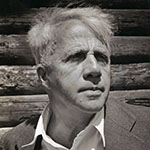

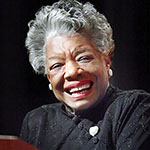
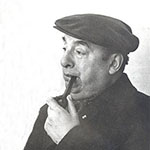
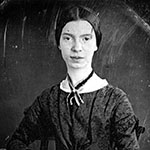
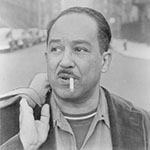
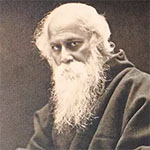
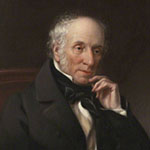

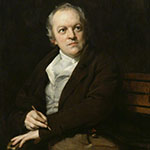

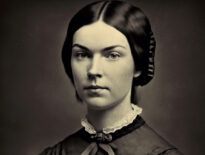
Leave a Reply